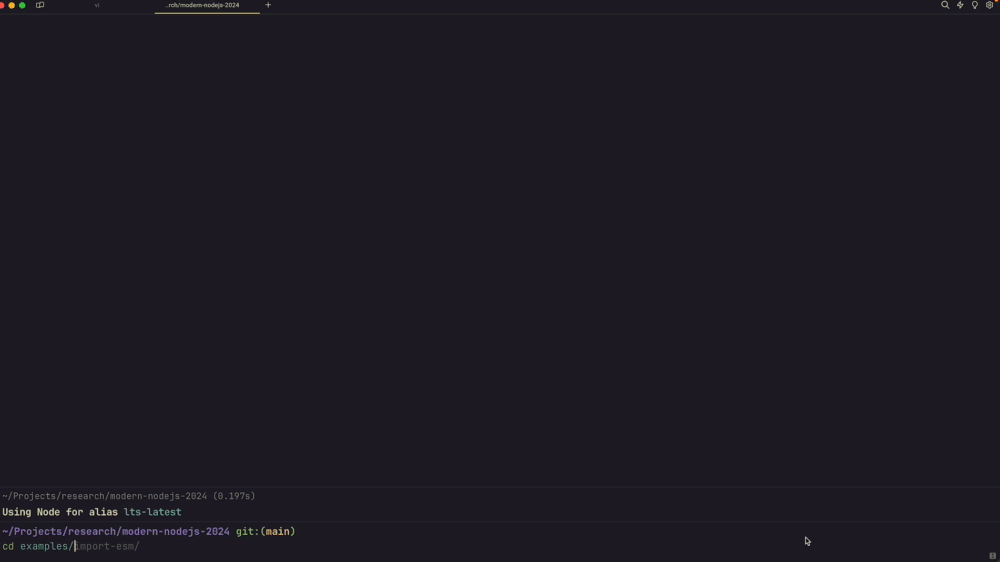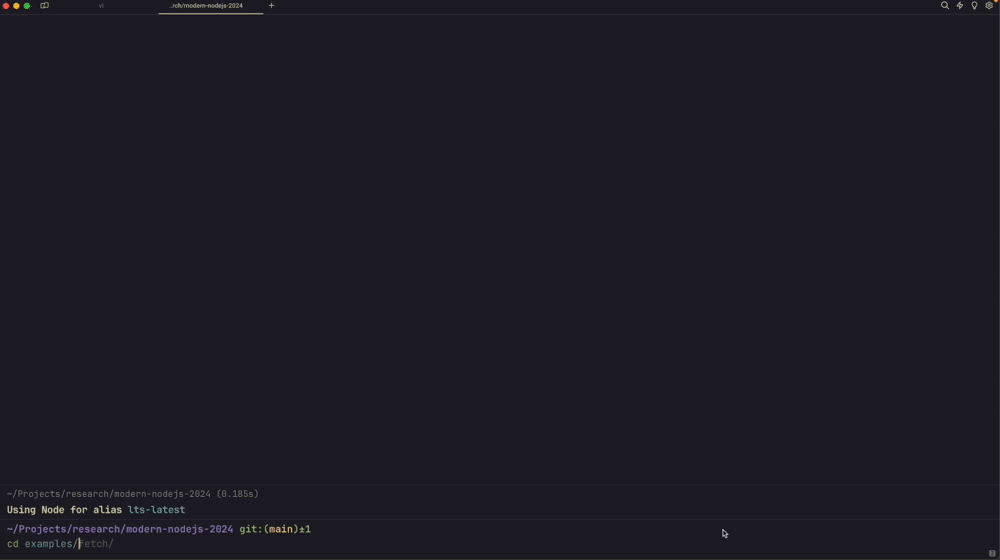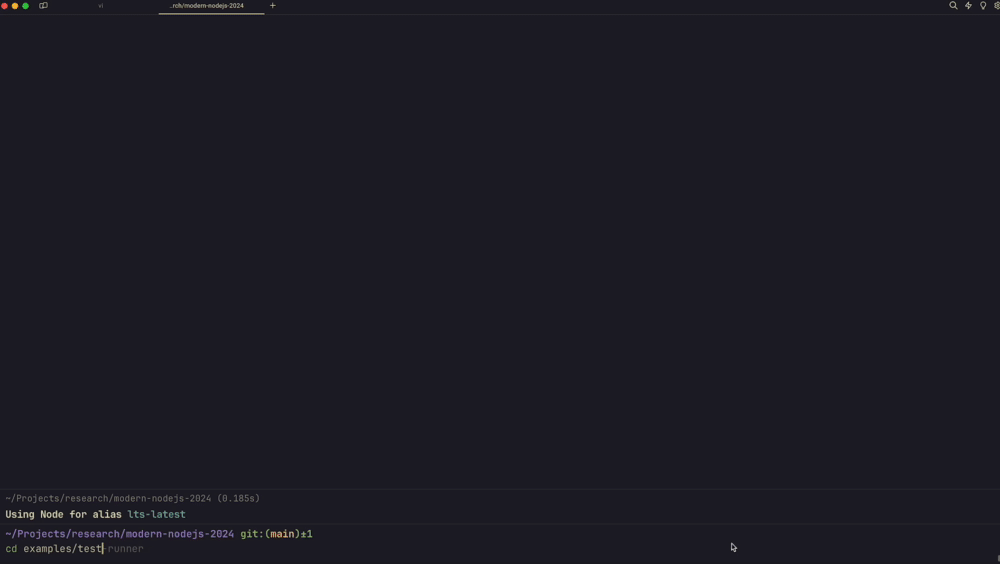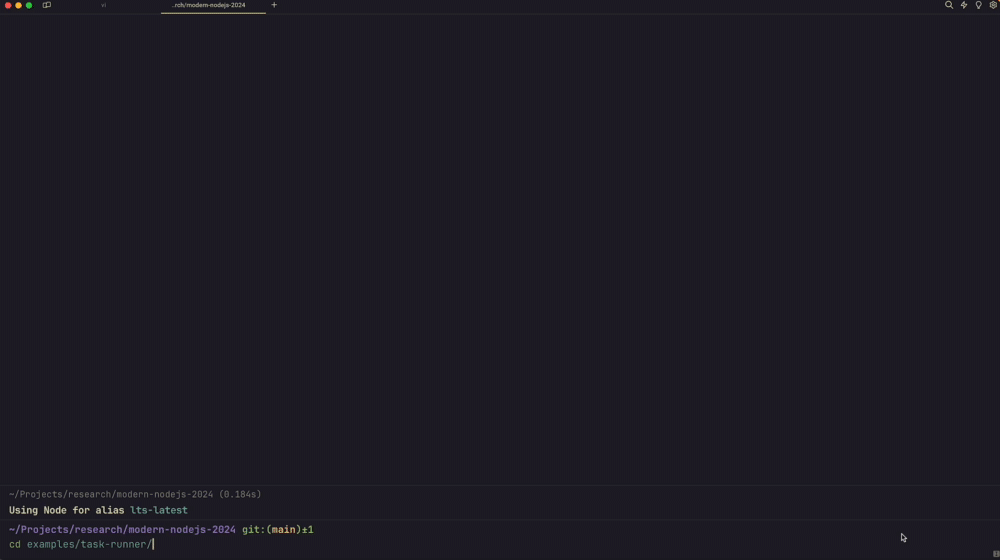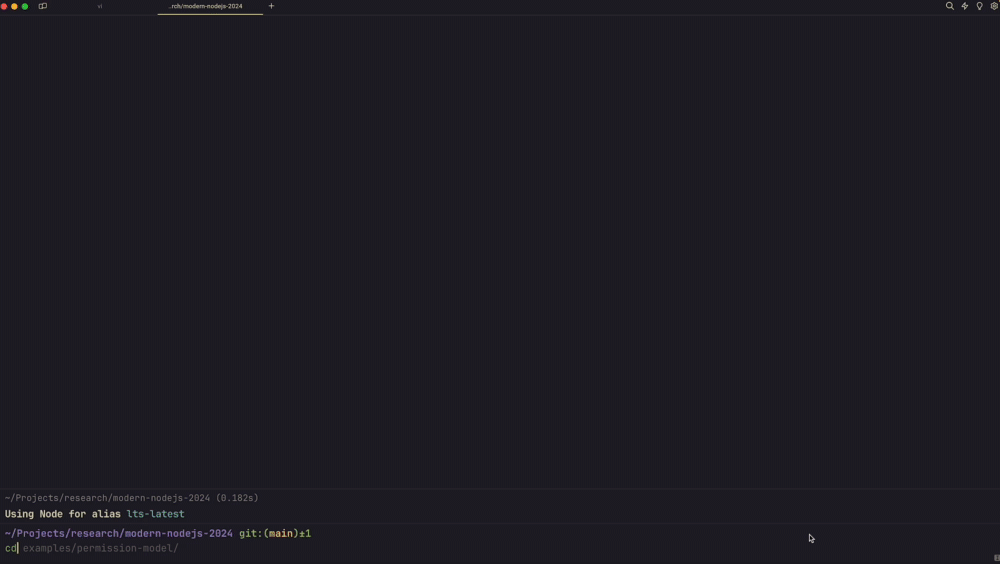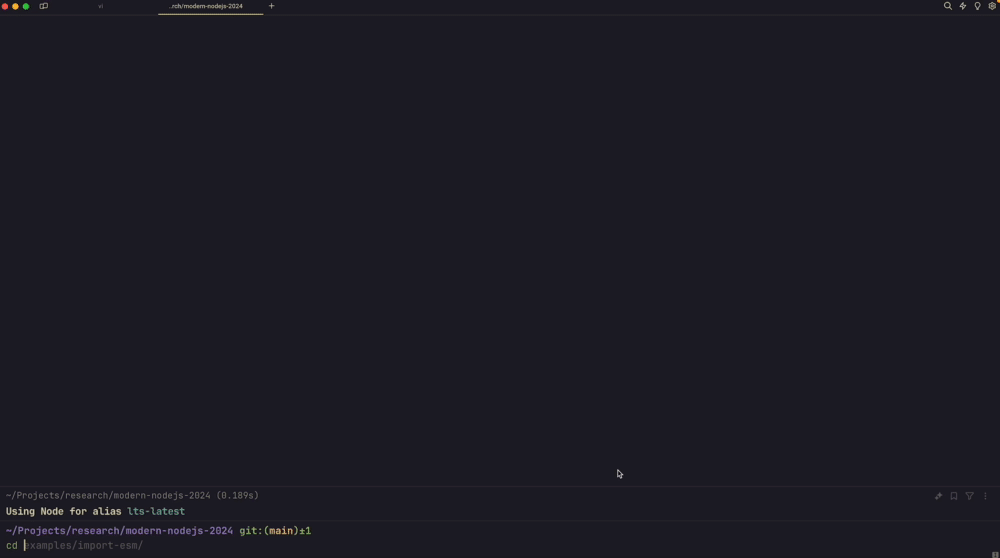The Latest in Node.js Development for 2024

Node Fetch Built-in
With Node.js 18, developers can write cleaner, more efficient code thanks to built-in fetch support, eliminating the need for external libraries.

node index.js
Read .env File Natively
Node.js 20 introduces native support for .env files, making it easier to manage environment variables. You no longer need to use the dotenv package.

node --env-file=.env.local index.js
Testing with node:test
The node:test library in Node.js 20 simplifies the setup and reduces dependencies needed for projects.

node --test
Task runner with node --run
The node --run command introduced in Node.js 22 provides a built-in mechanism for a task runner, complementing but not replacing existing package managers like npm, yarn, or pnpm.
Intentional limitations
node --runis not meant to match the behaviors ofnpm runor of theruncommands of other package managers. The Node.js implementation is intentionally more limited, in order to focus on top performance for the most common use cases.

node --run start
Permission model
Node.js 22 enhances application security with an experimental permission model (--experimental-permission), offering controls similar to those seen in Deno.

node --experimental-permission index.js
Import ESM modules from CJS
The ability to import ESM modules from CommonJS scripts under the --experimental-require-module flag in Node.js 22 simplifies module management and encourages the adoption of ESM.


node --experimental-require-module index.cjs
Conclusion
These features mark just the beginning of what’s possible with the latest updates in Node.js from versions 18 to 22. To dive deeper and see these features in action, check out the modern-nodejs-2024 repository for hands-on examples.
For a more visual explanation and additional insights, watch my video on YouTube.
Cheers, and happy coding with the new Node.js features!
 ITMan's Blog - 📚 Lifelong Learner
ITMan's Blog - 📚 Lifelong Learner